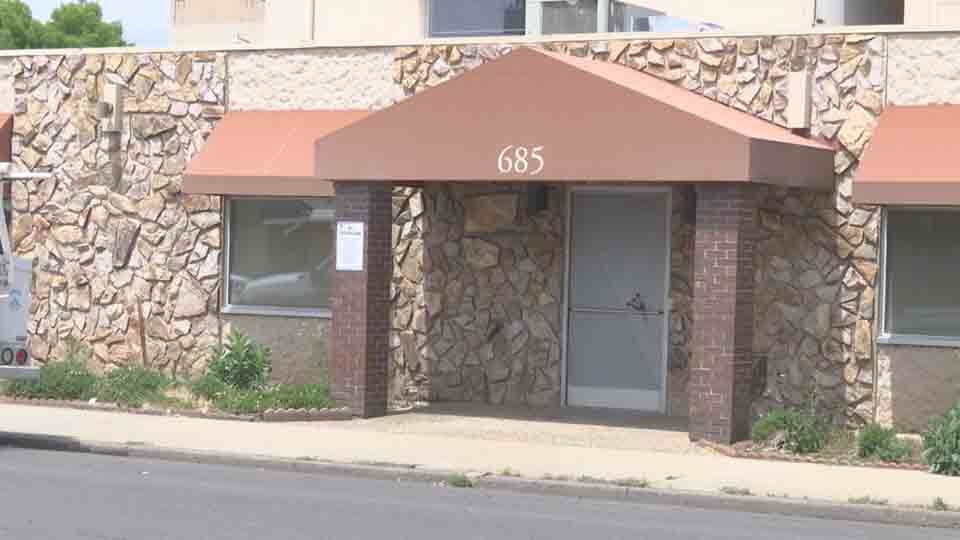Medford Judge Launches Community Outreach Court Program at Homeless Shelter

MEDFORD, Ore. — Medford Municipal Judge Virginia Greer launched her community outreach court program from a homeless shelter earlier this week. Operating her first outreach courtroom from Kelly Shelter, Judge Greer says she aims to create a safe space where everyone feels welcome.
Medford Municipal Judge Wants to Take the “Scary” Out of Courtroom Appearances
Judge Greer believes she can take the “scary” out of the courtroom appearance equation that keeps many people from airing their side of the story in courtrooms.
Setting up a temporary courtroom in an empty office at the Kelly Shelter, Judge Greer laughingly points out that no one can fear a judge wearing civilian clothes who operates from a camp chair in a non-threatening environment.
Helping People to Better Their Lives
Judge Greer says the community outreach courtrooms offer an opportunity for people to break a cycle of criminal charges and fines and to embark on a course for a better life.
The judge cited a few examples of how alternative sentences can improve someone’s life.
Using a trespassing charge for sleeping outside a business as an example, Judge Greer says instead of sentencing the accused to jail time or a monetary fine, the community outreach court will allow them time to find and maintain suitable housing for 30 days by connecting them with service providers. In this way, people will be helped to a better life because jail terms do not help extricate them from the criminal justice system, and monetary fines are usually out of their financial reach.
Helping to Lift the Criminal Justice System Workload
Judge Greer is determined to find solutions to managing these cases that will not only help those accused of various offenses but also relieve the pressure under which the criminal justice system operates. She says Oregon has a shortage of both public defenders and prosecutors.
Judge Greer hopes the community outreach courtrooms will take to the streets once a month, operating from venues like shelters throughout Medford. She tested the outreach courtroom program twice last year. The municipal judge says that the program assisted 76 people and cleared more than 500 cases.
The success of her current community outreach courtroom program is supported by data from a 2019 study that compared community courts and regular courtroom appearances. The study found that the number of community courtroom participants reduced by 50% within 12 months of completing the program.
Kelly Shelter Hearings
No less than 10 people visited the Kelly Shelter courtroom within the first hour of its opening. They said they had heard about the community outreach program by word of mouth and expressed the hope that the court would resolve their cases without imposing hefty fines.
Among them was Jeremy McElmurry who said he felt trapped in a cycle of criminal charges and fines. McElmurry said his tickets had “built up over time,” leaving him discouraged and intimidated.
Another hopeful was Rickey Singley. He lost his driver’s license when he could not afford to pay a fine. Homeless and living out of his car, Singley said it was difficult to hold down a job without transportation and if he could get the tickets cleared, finding employment would be easier.
Successful Hawaii Community Outreach Courtroom Program
In the Aloha state of Hawaii, an outreach program was launched in 2017 and has cleared more than 10,000 court cases and helped 615 people to graduate from the program. The state was given a federal grant to assist its homeless people by clearing petty offenses and connecting them with social services.
Oahu District Court Judge Thomas Haia says offenders take part in community services while working with a social worker. Finding them employment and stable housing is an integral part of the program. They also receive treatment when needed.
Judge Haia says community courtrooms play an important role in helping people return to the workforce by addressing low-level offenses such as tickets issued for traffic violations. He says the program is not just about clearing traffic tickets, but also about helping people get back on their feet. Judge Haia points out that securing a good job usually entails being able to drive.
